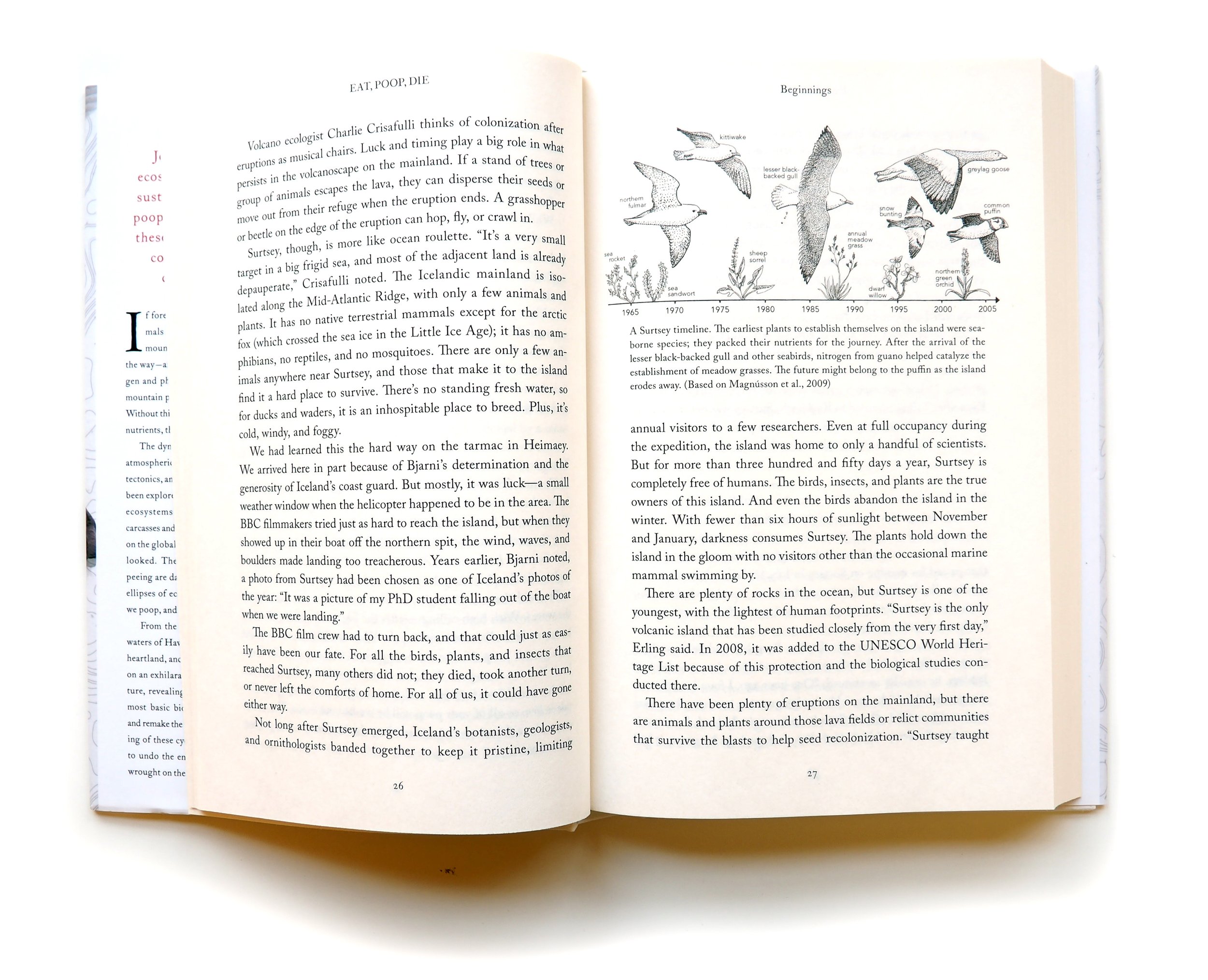Eat, Poop, Die: How Animals Make Our World
Written by Joe Roman, illustrated by Alex Boersma
NAMED A TOP-TEN BEST BOOK OF 2023 BY SCIENTIFIC AMERICAN
A fascinating exploration of how ecosystems are sculpted and sustained by animals eating, pooping, and dying—and how these fundamental functions could help save us from climate catastrophe.
If forests are the lungs of the planet, then animals migrating across oceans, streams, and mountains—eating, pooping, and dying along the way—are its heart and arteries, pumping nitrogen and phosphorus from deep-sea gorges up to mountain peaks, from the Arctic to the Caribbean. Without this conveyor belt of crucial, life-sustaining nutrients, the world would look very different.
The dynamics that shape our physical world—atmospheric chemistry, geothermal forces, plate tectonics, and erosion through wind and rain—have been explored for decades. But the effects on local ecosystems of less glamorous forces—rotting carcasses and deposited feces—as well as their impact on the global climate cycle, have been largely overlooked. The simple truth is that pooping and peeing are daily rituals for almost all animals, the ellipses of ecology that flow through life. We eat, we poop, and we die.
From the volcanoes of Iceland to the tropical waters of Hawaii, the great plains of the American heartland, and beyond, Eat, Poop, Die, “compulsively readable” (Shelby Van Pelt), takes readers on an exhilarating and enlightening global adventure, revealing the remarkable ways in which the most basic biological activities of animals make and remake the world—and how a deeper understanding of these cycles provides us with opportunities to undo the environmental damage humanity has wrought on the planet we call home.
Published by Little Brown, 2023




